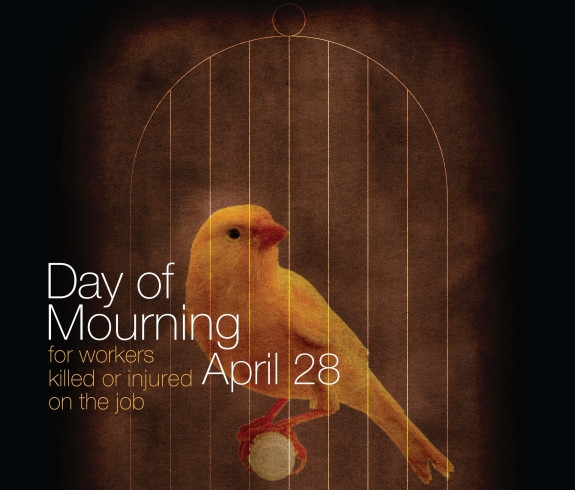It has been just two months since Alain Bissonnette, a member of CUPE Local 503, lost his life in a tragic workplace accident. A heating, ventilation and air conditioning technician in the Ottawa public works department, Brother Alain died on the job at an Ottawa long-term care facility.
On April 28, the Day of Mourning for Workers Killed or Injured on the Job, we will all pause to mourn this loss and renew our commitment to ensuring an end to such tragedies.
The real tragedy is that workplace deaths continue, and all too frequently in Canada, and governments are not helping to prevent them. Labour groups campaigned for years to get laws in place that allow corporate leaders to be held responsible and sent to jail for creating workplace conditions that lead to worker deaths and injuries. But to date, not one corporate leader responsible for a worker dying has gone to prison. Kill a worker, go to jail. It should be as straightforward as that. Then employers might take their responsibilities seriously.
Governments are not pushing for better workplace safety. In fact, we’re seeing the opposite. A frenzy of activity to prepare public assets for privatization is driving a wave of bottom-line thinking, and worker health and safety is often the first victim of corporate cuts.
In CUPE, we learned the dangers of this mindset when Brother Brodie Schwartz died on the job at Westario Power in 2010. The company had made changes that workers were not adequately trained for, and Brother Schwartz was sent to work alone. Things would have been different were Westario not in the midst of restructuring to prepare the company for a potential sale to the private sector.
Today, the province is making a similar push to restructure Hydro One, the provincial electrical distribution and transmission service, for sale to the private sector.
There are many reasons to oppose this sale: it will drive up hydro rates, we’ll lose public control, government will lose hundreds of millions a year in revenue. Any way you cut it, the plan doesn’t make sense. But we also know that in the private sector profits trump all else, and focus on the bottom line will cut through the safety net our members rely on.
Corporations are benefitting tremendously from massive tax cuts. In fact, profitable corporations now pay the lowest taxes since before the Great Depression, but they’re not investing that windfall into improving health and safety. If they were, we’d be seeing a decline in workplace injuries and deaths.
We’re not.
So, on this Day of Mourning, as we pause together to remember Brother Bissonnette and our other sisters and brothers who have been killed, injured or made sick because of their jobs, let’s redouble our efforts to use the Health and Safety law to its fullest power. Every worker has the right to refuse unsafe work. Together, we must make sure every worker knows they have this right, and that they exercise that right. By refusing unsafe work, we make workplace health and safety a priority and make employers take their responsibilities seriously.

